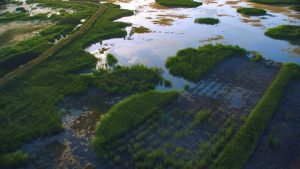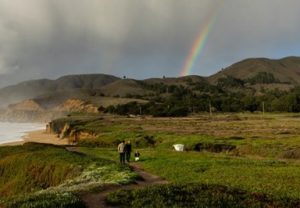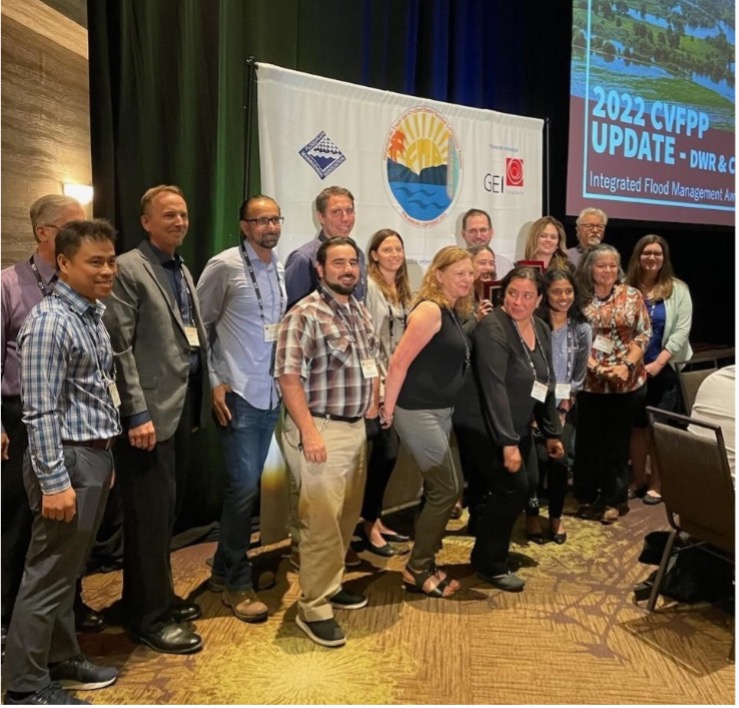Central Valley Flood Protection Board
The Central Valley Flood Protection Board (Board) establishes, maintains, and enforces standards for the construction, maintenance, and operation of the flood control system to protect life, property, and habitat in California’s Central Valley. The Board coordinates State entities, local flood risk control agencies and the federal government to minimize damages from floods in California’s Central Valley and is the non-federal sponsor for federal flood control projects in the State Plan of Flood Control. The Board serves as a public forum for flood risk reduction policy in the Central Valley and is responsible for adopting updates to the Central Valley Flood Protection Plan every five years.
2023 PUBLIC HOURS AND MEETING SCHEDULE
In accordance with the Governor’s order, the Board will continue to host hybrid meetings and workshops through 2023. Locations and access information for future meetings will be posted on our homepage and updated as needed.
For public drop off of physical documents, including applications and fees, we can be contacted by phone or email as noted below to schedule a drop off.
-
With our new hybrid teleworking environment, most staff are only at our office location on Tuesdays each week. Administrative staff are available at the front desk Tuesdays and Thursdays from 8:30 am – 3:00 pm. Appointments are required to meet with staff or receive in-person assistance at the front desk. If you are currently working with a staff member on an item, please continue to contact that staff member. If you need general information, please contact the general mailbox at Questions@CVFlood.ca.gov.
-
We will be prioritizing permits based upon health and safety factors, including the availability of staff and partners, and application processing times may be extended during this period. Please bear with us as we work through this new system.
-
Past recordings of Board meetings and workshops can be found on the CVFPB YouTube Channel
Jane Dolan
Board President
NEWS & HIGHLIGHTS
First-of-its-Kind Watershed Study Highlights How Innovative Tools Help Build Climate Resilience in the San Joaquin Valley

From DWR – California’s changing climate brings new challenges each year for water managers as they navigate extreme shifts from drought to flood while working to ensure safe, reliable water supplies for California’s 39 million residents. Water managers address these challenges in their local watersheds, which are often at the forefront of the impacts of climate change. The Department of Water Resources (DWR) is working with local and regional water agencies such as the Merced Irrigation District to conduct cutting-edge climate vulnerability assessments of watersheds in the San Joaquin Valley and evaluating how flood protection and groundwater recharge strategies can be used to adapt to climate vulnerabilities. (more)
How a Different Type of Atmospheric River Storm Saved California From Another Drought

From The Mercury News – Atmospheric river storms are like punches in a boxing match. A flurry of weak ones are OK. But it’s best to avoid the big knockout blows.
That’s exactly what happened in California this winter. Scientists say that from Oct. 1 to April 1, the state actually received more atmospheric rivers, the famous moisture-laden meteorological events that are critical to the water supply, than it did last year — 44 this winter compared to 31 last winter. But the intensity made all the difference. Statewide, California had just 2 strong atmospheric rivers this winter, compared with 7 last year. Many of the biggest this winter hit Washington and Oregon instead. The result was, for the most part, a remarkably, blissfully average rainy season for California. (more)
NOAA FISHERIES: Welcome to Salmon Country: California’s Central Valley

Video from NOAA Fisheries and mavensnotebook.com – To the residents of California’s Central Valley, salmon represent family, culture, jobs, community, and identity. The Central Valley has a rich salmon culture. Join us as we talk with community members and learn how they connect with Central Valley salmon. Salmon have been here for millions of years. They have been central to the culture and economy of Indigenous people since time immemorial. They still are to this day. In the mid-to-late 1800s, European settlers exploited West Coast salmon in excess, and overharvest continued into the 1970s. As native salmon runs declined, hatchery programs replaced the native runs. Meanwhile, impacts from industry, agriculture, mining, forestry, and urban development filled floodplains, dredged and channelized rivers, contaminated water, removed streamside forests, and built dams, blocking the habitat salmon need to spawn and rear. Together with partners and community members, we are working to ensure salmon are a vibrant contributor to a thriving Central Valley. Where they are valued as a part of our culture, their important role in our ecosystem, for the way they support jobs, recreation, and feed our families. (more)
Quick Links
- ABOUT US
- ACCESS TO PUBLIC RECORDS
- TRIBAL CONSULTATION POLICY
-
OTHER RELATED LINKS
U.S. Army Corps of Engineers (USACE)
USACE Section 408
USACE Section 404
The California Natural Resources Agency
Department of Water Resources (DWR)
Delta Stewardship Council
Regional Flood Management Coordinating Committee
U.S. Bureau of Reclamation
U.S Fish & Wildlife Service
National Marine Fisheries Service
California Emergency Management Agency
California Department of Fish & Wildlife
National Committee on Levee Safety (USACE) - CAREER OPPORTUNITIES
- CONTACT US
- CVFPB ORGANIZATION CHART
- California Government Code 65007 (SB 5, 2008)
- Central Valley Flood Protection Plan
Congratulations

Central Valley Flood Protection Board (CVFPB) and Department of Water Resources (DWR) Receive Floodplain Management Association’s (FMA) Integrated Flood Management Award
This award is given to individuals or project teams who have prepared and/or implemented a locally-approved, state-approved, or federally-approved multi-objective flood management plan. Candidate projects should demonstrate innovative advancements in water management as well as collaborative partnerships with community groups and the general public. Project outcomes should benefit many stakeholder interests such as environmental, flood control, recreational, and emergency planning and responsiveness.“The Central Valley Flood Protection Board and DWR are proud to receive the Floodplain Management Association’s Integrated Flood Management Award for the 2022 Central Valley Flood Protection Plan (CVFPP) Update.” The CVFPP Update was recognized for a robust, multi-year communication and engagement process involving state, federal, Tribal, regional, and local partners. DWR, with CVFPB input, incorporated the newest information, updated science, and innovative tools to develop priorities for improving flood risk management in the Central Valley. CVFPB officially approved the Update on December 16, 2022. Learn more about the CVFPP here. Congratulations to both agencies!


 Visit the State of California
Visit the State of California




